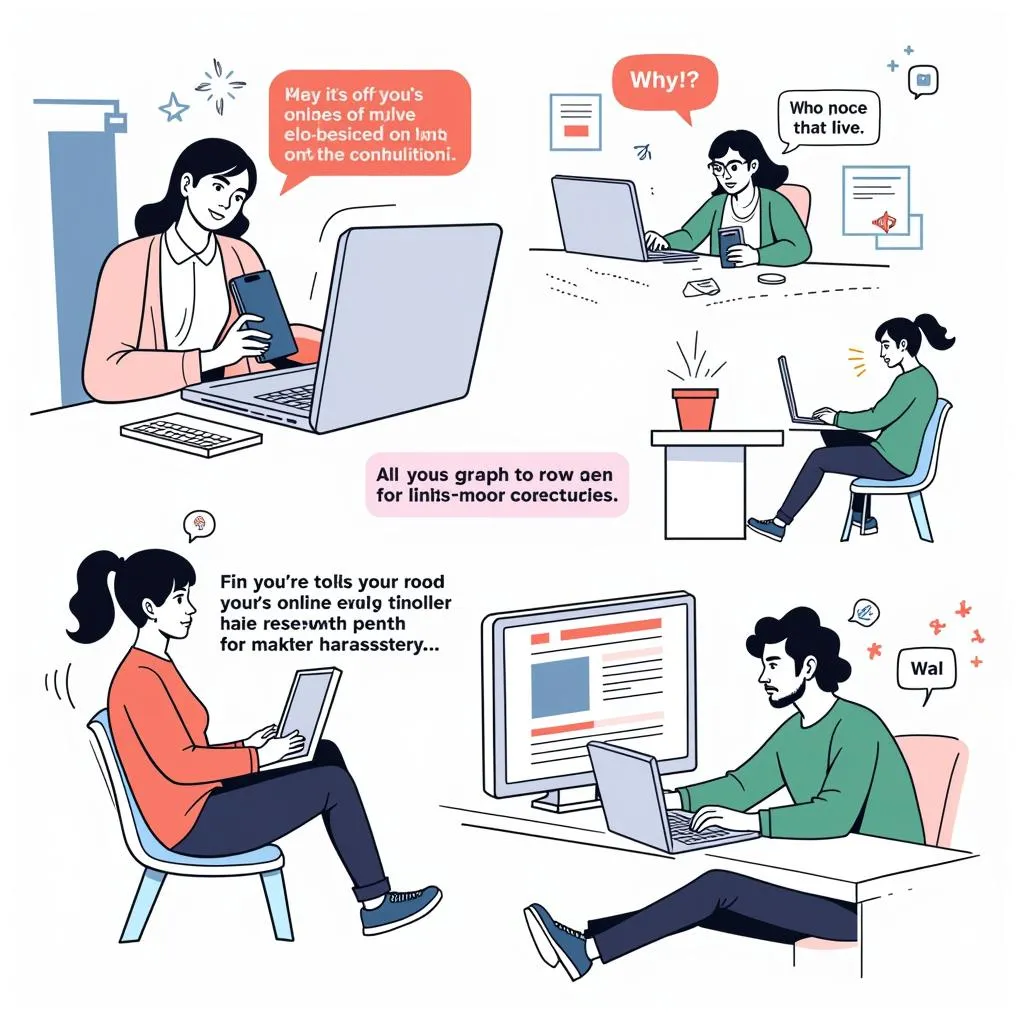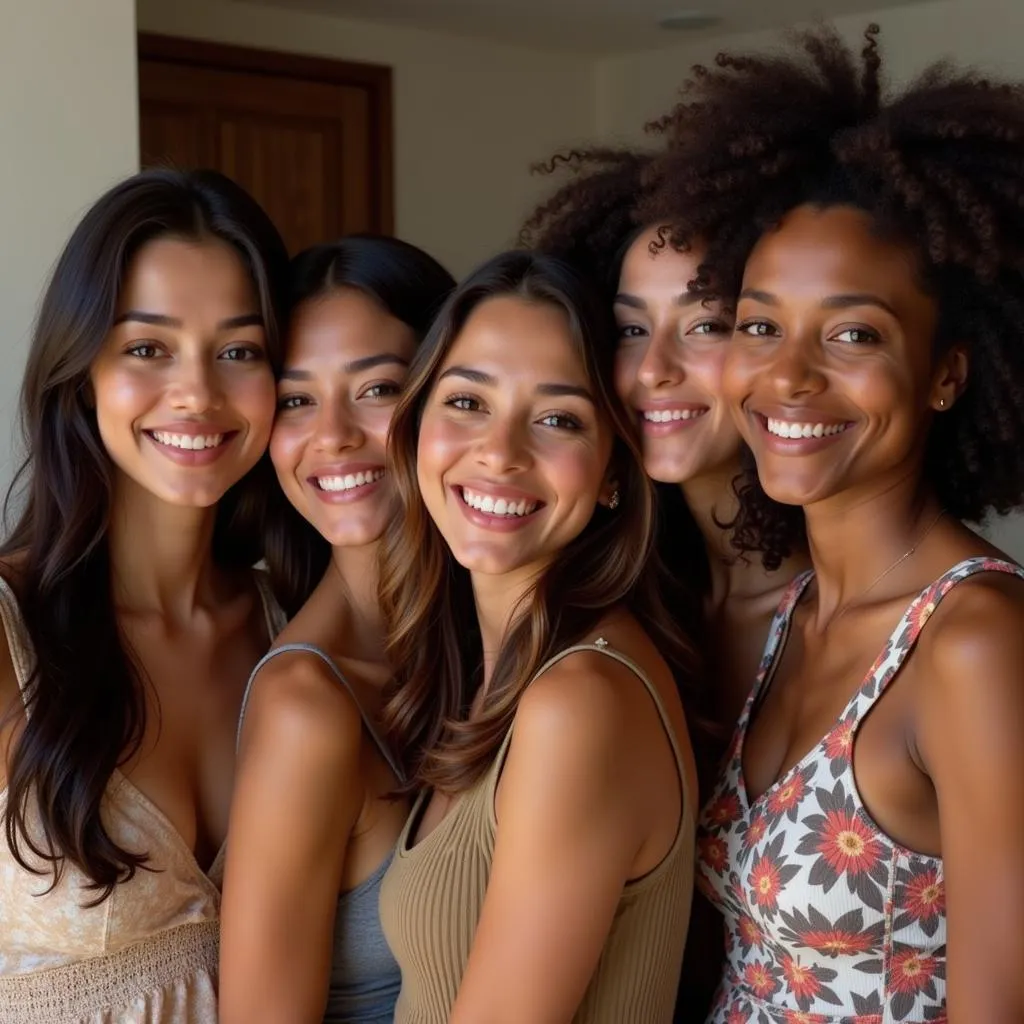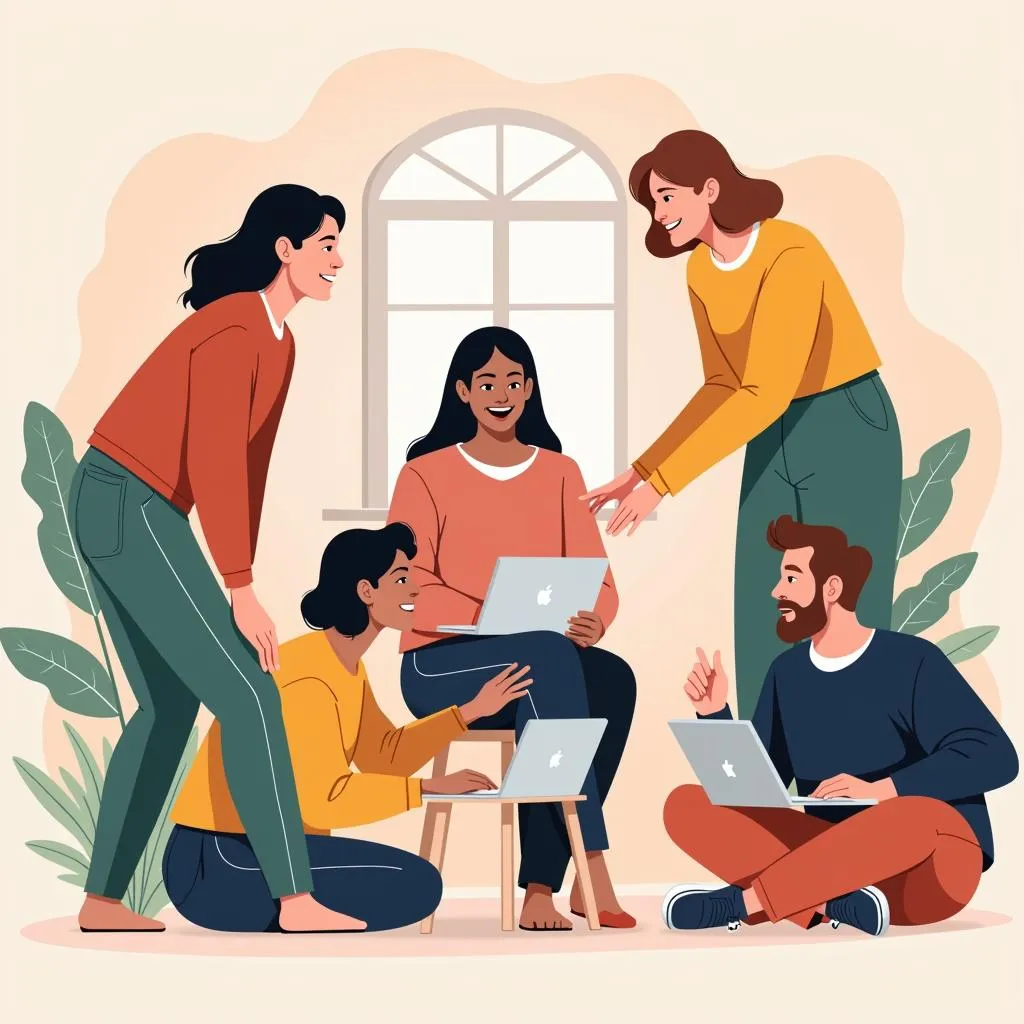The digital age has ushered in an era of unprecedented interconnectedness. Yet, this same connectivity has given rise to complex challenges, one of them being the use of derogatory terms like “Thot Society” to label and demean individuals, particularly women, online. While the term might seem like just another example of internet slang, it carries deeply problematic implications that perpetuate harmful stereotypes and contribute to a culture of disrespect and online toxicity. This article delves into the meaning and impact of “thot society”, exploring ways to navigate digital spaces with empathy and promote a more respectful online environment.
While the term might appear ambiguous or even humorous to some, it often carries a heavy weight of judgment and misogyny. “Thot” itself is a derogatory acronym often used to shame women for their perceived sexual activity or expression. Labeling a group of people as “thot society” further amplifies this negativity, creating an “us vs. them” mentality that fosters hostility and discourages open dialogue.
 Illustration depicting online harassment
Illustration depicting online harassment
The Danger of Dehumanization
One of the most concerning aspects of using terms like “thot society” is the dehumanizing effect it has on the individuals being targeted. By reducing people to a single, often inaccurate, label, we strip them of their complexity and individuality. This kind of labeling can have devastating consequences, leading to cyberbullying, harassment, and even real-life harm. It’s important to remember that behind every screen is a real person with feelings, thoughts, and experiences that deserve to be respected.
Challenging Harmful Stereotypes
The use of “thot society” and similar terms often stems from deeply ingrained societal biases and double standards, particularly regarding women’s sexuality. These stereotypes are not only inaccurate and unfair but also contribute to a culture where women feel pressured to conform to narrow and often unrealistic expectations. By challenging these stereotypes and promoting more inclusive and respectful representations of women online, we can begin to dismantle the harmful power dynamics that perpetuate such language.
 Image of a diverse group of women smiling confidently
Image of a diverse group of women smiling confidently
Building a More Empathetic Online World
Creating a more peaceful and respectful online world requires a collective effort. Here are some ways we can all contribute:
- Think Before You Type: Pause and consider the potential impact of your words before posting or commenting online. Ask yourself if your comment is kind, necessary, and contributes positively to the conversation.
- Challenge Hate Speech: When you encounter hate speech or derogatory language online, speak up and challenge it. Silence often implies agreement, so it’s important to use your voice to advocate for respect and inclusivity.
- Promote Empathy and Understanding: Engage in conversations that encourage empathy and understanding. Listen to diverse perspectives, even if you don’t agree with them, and try to see the world from others’ points of view.
- Support Victims of Online Abuse: If you witness someone being bullied or harassed online, offer your support. Let them know they are not alone and direct them to resources where they can find help.
Cultivating a Culture of Respect
Ultimately, creating a more peaceful digital world goes beyond simply avoiding offensive language. It requires a fundamental shift in our online interactions, one where empathy, respect, and understanding are at the forefront. By choosing to engage in thoughtful, compassionate dialogue, we can challenge harmful norms and contribute to a more inclusive and equitable online experience for everyone. Remember, our words have power, and we all have a role to play in shaping a digital world that reflects the values of peace, respect, and understanding.
 People connecting online illustration
People connecting online illustration
FAQs About Online Etiquette
1. What can I do if I see someone using the term “thot society” or similar language online?
You can choose to directly address the person using the term, explaining why it is harmful and disrespectful. You can also report the comment to the platform if it violates their community guidelines.
2. How can I be a better ally to women online?
Listen to women’s experiences, amplify their voices, and challenge sexist jokes or stereotypes when you encounter them. Educate yourself on issues women face online and offline, and use your platform to advocate for gender equality.
Need Support or Want to Learn More?
If you or someone you know is experiencing online harassment or needs support, please reach out. You can contact our 24/7 hotline at 02043854663 or email us at [email protected]. We are here to help and provide resources for a safer online experience. Visit our website to discover more articles and resources on building a more peaceful digital world.